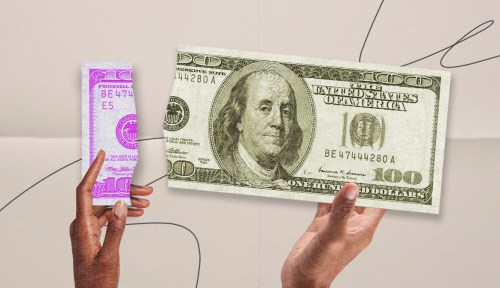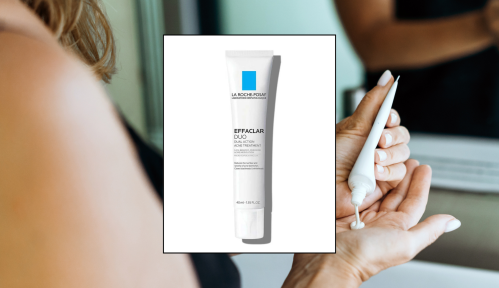The persistent longevity of the gender pay gap is unsettling. Women generally earn 82 cents for every dollar paid to their male counterparts, according to the National Women’s Law Center. When broken down by race and ethnicity, Black women are paid only 63 cents for every dollar made by white men, and Latinas earn only 55 cents for every dollar that a white, non-Hispanic man makes.
In recognizing the unfairness of this gender gap, many women are confidently pulling up to the negotiation table and asking for more money. But are they actually getting what they request? Results from a Marketplace-Edison research poll shows that 37% of men and 36% of women have asked for a raise—pretty much the same. But 82% of those men received the raise they asked for, compared to only 74% of women who were successful.
It’s an unfair reality that Shakira M. Nelson, PhD, MPH knows all too well. After sending out a number of job applications, she was offered a dream role working on health disparities in a government position. All she had to do was negotiate her hiring package. “My mentor advised me to not necessarily ask for more money that was beyond the entry level for the job,” Dr. Nelson says, “but to ask for other types of support and other things that colleagues of mine who were in similar positions had been able to get with their first government job position.”
So she did. The human resources department denied Dr. Nelson’s request but, with the encouragement of her mentor, the 39-year-old government scientist reached out to the person who would’ve been her direct supervisor—a fellow Black woman—to ask if she could advocate on her behalf. Instead, the woman told Dr. Nelson she had to work her way up (as she did) and felt that Dr. Nelson was trying to elevate herself to a position that she had not yet earned.
“I got a call from HR where they said this particular person decided to go in another direction with the job, and they would no longer need me to fill the position,” Dr. Nelson recalls. “I was pretty devastated.”
Dr. Nelson, like many women of color, recognize that in addition to combating gender bias in the workplace, they’ll also have to navigate race discrimination and implicit bias at nearly every turn. While Black and Latina women ask for promotions and raises at similar rates to white women, they often get unfavorable results. The Workplace Negotiations, Gender, and Intersectionality report, produced by Bentley University’s Center for Women and Business, confirms that despite ambitious career goals, they are less successful than white women when negotiating for pay and promotion.
This reality is why the common phrase “The worst they can say is no!” has very different implications for women of color. Jacqueline V. Twillie, a negotiation consultant and author of Don’t Leave Money On The Table: Negotiation Strategies for Women Leaders in Male-Dominated Industries, notes that women of color, particularly Black women, must negotiate with a heightened level of preparation and self-awareness. She advises them to view negotiation as a conversation, not a battle—and to own their assertiveness.
“When we speak passionately, sometimes that’s misconstrued as being aggressive,” Twillie says. “When we assert ourselves, that can also be misconstrued as aggressive. So I tell women that they need to really be aware of stereotypes that exist and call them out in a conversational manner … When I’m going into a negotiation and I’m going to assert myself, I’ll say, ‘I’m really passionate about this, so you’ll hear me asserting myself’ to address any unconscious bias that may be there, and also reclaiming power in that negotiation by calling it what it is.”
There’s a double standard, agrees Claire Wasserman, the founder of Ladies Get Paid. “You can act assertively, but you may be perceived as aggressive essentially because you’re acting outside of the social norm of how we expect a woman to act,” she says. “Of course, women of color are held to an even higher standard.”
There’s a fine line women are asked to tread when negotiating their salary or asking for a raise, Wasserman acknowledges—one where they’re expected to humbly showcase individual accomplishments and leadership skills without overshadowing the collective. It’s why she urges women to use their storytelling skills, providing testimonials or any tangible feedback, to support their ask. “If you’re able to really show who you are in the work that you do, how you operate, how you think, your superpowers—whether it’s empathy, or patience, or [you’re] detail oriented, or your capacity to support other people—that will make you stand out.”
Ariel Lopez, a career coach and the CEO of Knac, recommends entering all conversations as a value add, not from a place of desperation. “Employers are going to be quicker to meet your demand if you’re able to really identify your leverage and/or how you are a value add to them,” Lopez says.
Lopez, Twillie, and Wasserman emphasize the power of preparation. For instance, extensive research on who you’re speaking with can help you personalize your approach and know how much of a salary increase you should reasonably expect. Another tip: Know the market rate for a job, even if it’s a remote position, and always give a salary range instead of a solid number (which hinders your ability to negotiate). Lopez provides a simple formula to calculate your range: “It should always be 20% more than whatever your base salary is, minimum. Let’s say you’re making $60k now. I would say you want to be looking for $80 to $100k in your next role.”
Though Bronx-based senior analytics manager Coy Griffin was able to secure a $45,000 salary increase in 2021, even ascending from an analyst to her current managerial position, she can attest to the challenges women of color face when asking for more money. “Once I identified that I was doing work that I wasn’t getting paid for, I spoke to my manager and I let her know my concerns,” she recalls. “I said, ‘I know raises are coming up and when I checked what people are doing within our industry, I would like a $70k salary, minimum.”
When the 26-year-old’s new manager came back with only a $5k increase, Griffin left her analyst position, describing the situation as “a slap in the face.” She’d then go on to a senior analyst position, where she was able to negotiate a stronger benefits package. Though she ended up exiting that role due to an overall unhealthy work environment, the Afro-Honduran professional accepted an offer that paid $30k more than her last position. She credits revamping her resume to include her fashion tech consulting agency and nonprofit company, updating her LinkedIn with relevant certifications, verbalizing existing connections with her interviewers, and reiterating her leadership skills during the interview process. “When I went into the interviews, I just made sure I re-emphasized my level of experience,” she says. “I was not shy about it at all.”
As the statistics show, you can do everything right and still not snag the sought-after raise or position due to bias. Though Nelson will always remember being professionally snubbed, she’s gone on to excel in her industry and vows to never repeat what was done to her: “I remember saying to myself that as Black people in the working world, especially as Black women, I need to really be conscious of how I work with those who are coming up under me, so I don’t continue the same behaviors and relegates their career paths similar to how someone tried to relegate mine.”
Despite the professional nos, there will always be opportunities that await, Twillie says. “If one company or organization gave you an offer, there will be other offers to come. It’s not a zero-sum game.”
Oh hi! You look like someone who loves free workouts, discounts for cutting-edge wellness brands, and exclusive Well+Good content. Sign up for Well+, our online community of wellness insiders, and unlock your rewards instantly.
Sign Up for Our Daily Newsletter
Get all the latest in wellness, trends, food, fitness, beauty, and more delivered right to your inbox.
Got it, you've been added to our email list.











